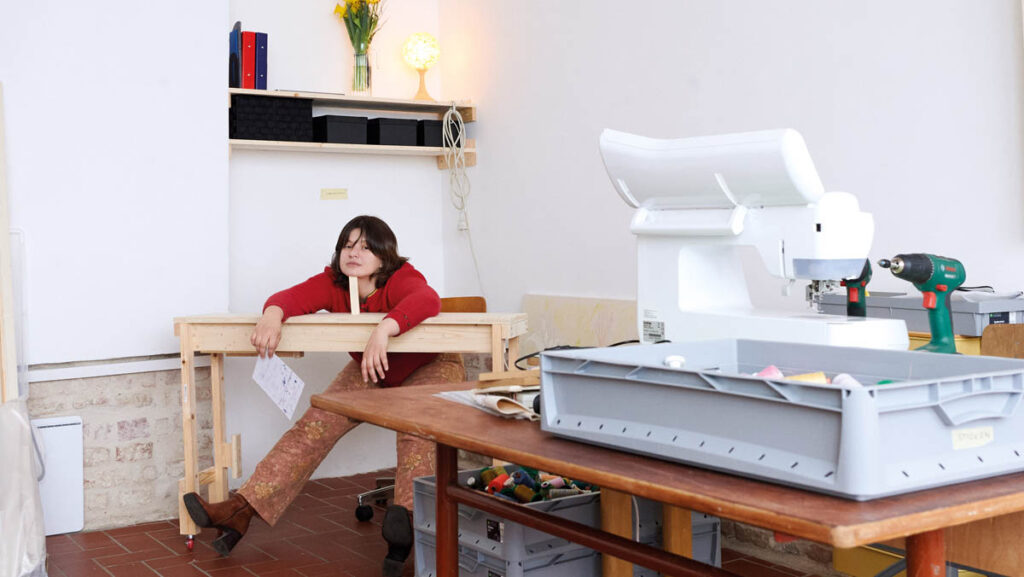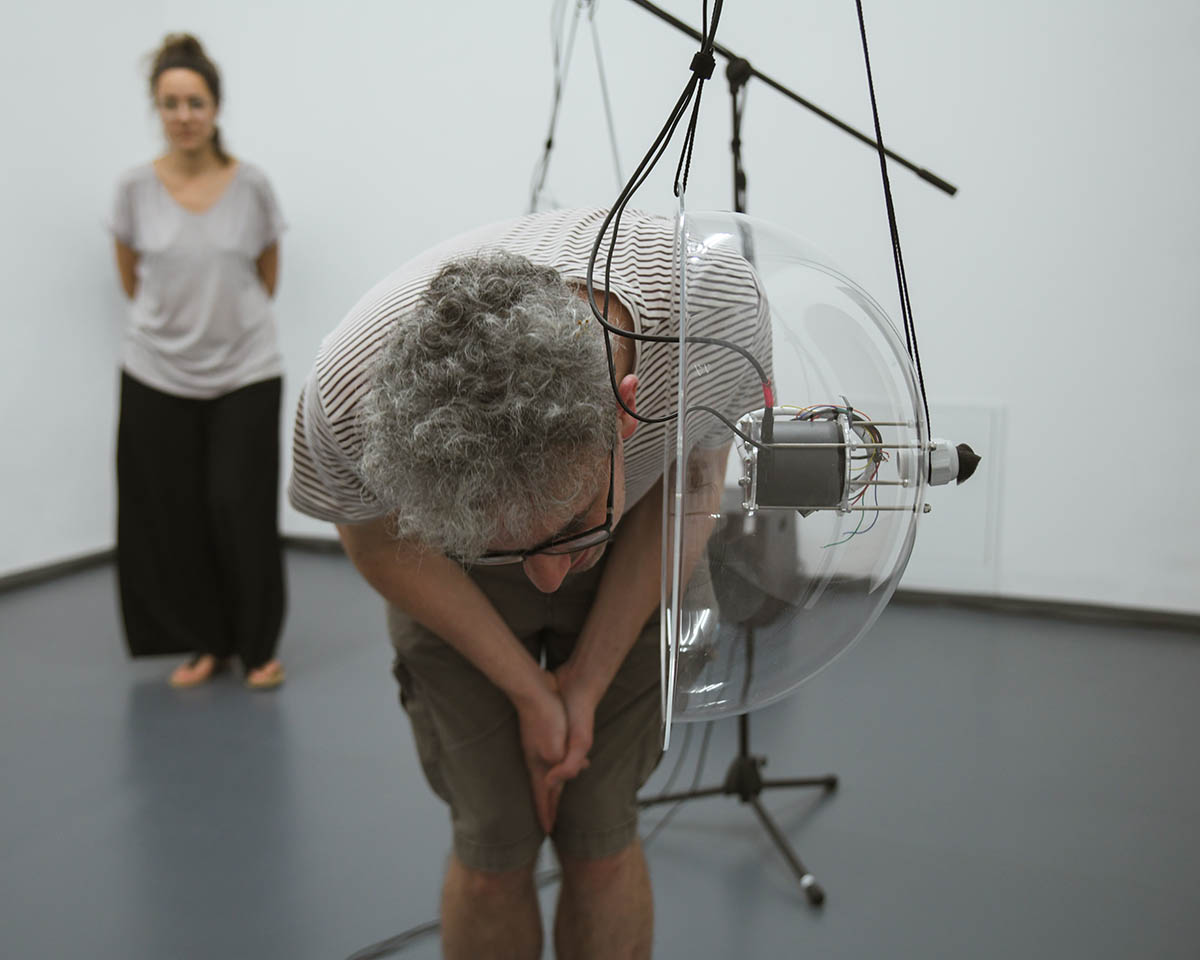
AMRO (Art meets Radical Openness) is a festival dedicated to Art, Hactivism, and Open Culture. Can you explain the concept more closely and tell us how the idea developed in a festival frame?
Ushi: In principle, the festival is based on an open call, but with relatively strict guidelines. If software is involved in a contribution to the Festival, it must be free, open-source software. Since the submissions have been rather sparse in recent years, we have started to create a fixed program in parallel, which develops from our research labs and from topics that concern us. Long-time-collaborating community members are also involved in the development of the program. Also, what is important is the selection of incoming submissions, or the program, always within an active group around the event.
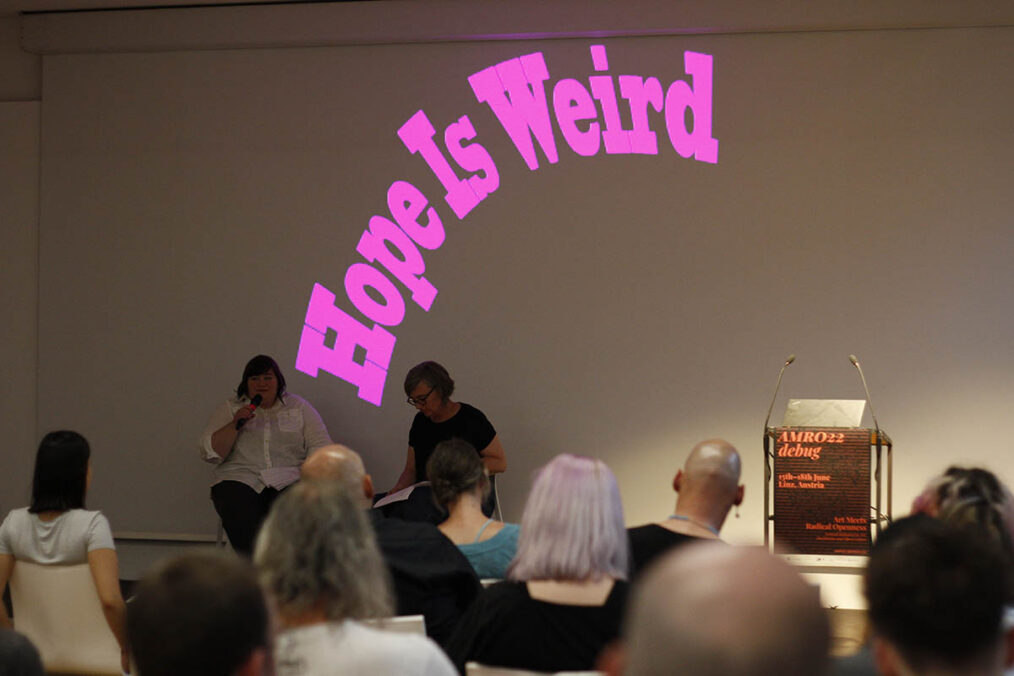
The festival has grown over the last fifteen years; How did it begin and develop?
Ushi: AMRO is a community festival and has its roots in the successful Free Software movement of the early 2000s. In conjunction with the Austrian-wide initiative Linux Weeks, servus.at was a co-organizer from the beginning with an event in Linz (LiWoLi – „Linux Weeks Linz“). While I was (2005 – 2017) active managing director of servus.at the cultural, artistic and socio-political focus of the association and the event, which is still marked by the spirit of the Free Software movement, has been systematically expanded with the help of international cultural workers in this context. Since 2008 the Kunstuniversität Linz has been partner of the event. Social, societal and political aspects arising from the pervasion of technology in everyday life were shifted into the foreground of the Community-Festival.
Davide: Recently, AMRO-Festivals and other projects of Servus have been supported by a growing group of local artists and developers, such as Gabriela and Theresa, as well as longer-term contributors.
Gabriela: After LoWoLi, following the interest of the organizers in the overlap of artistic practices and political discourse, it took the form of a festival, which would merge these approaches: tech and art from a critical perspective. After a budget cut in one of the editions, it eventually became a biennale, alternating each year with the Research Lab, which compiles activities and research with guest artists, developing topics that feed the following edition. The Research Lab format is fluid and has its development as the public (artistic/cultural) program of Servus.at.
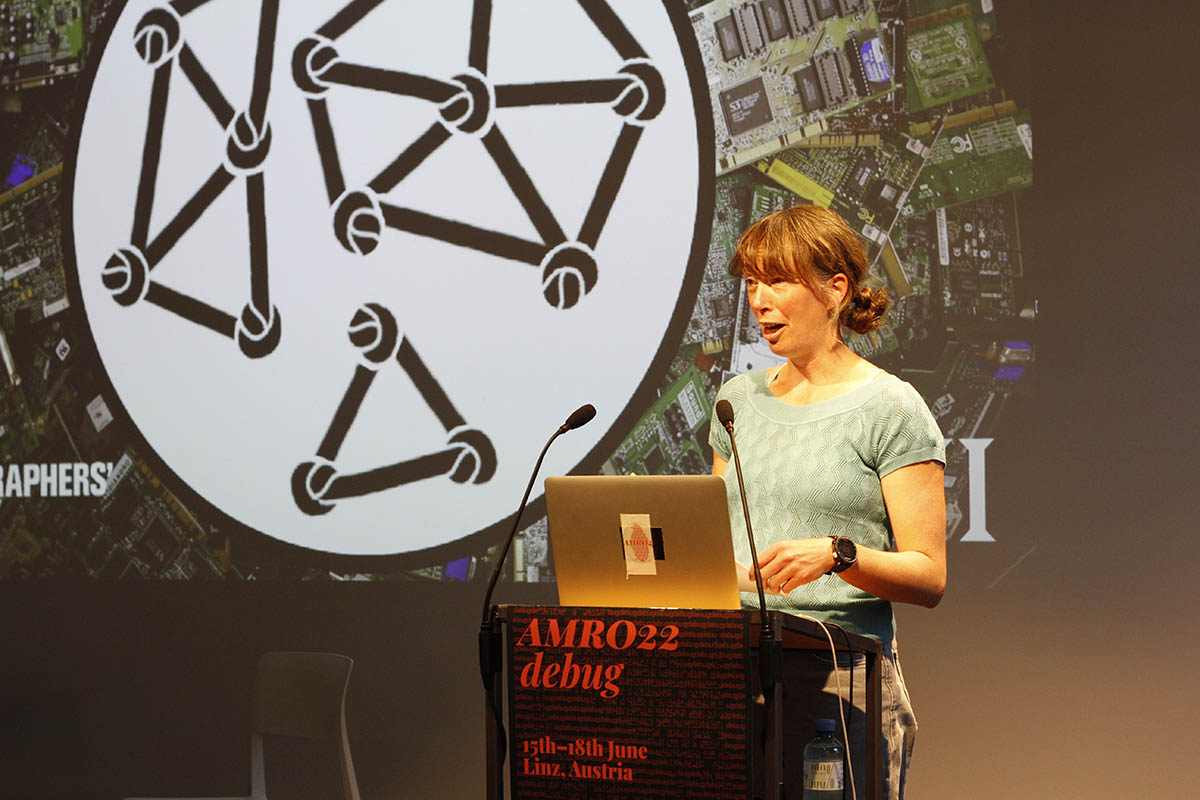
![[ATXT], Sandra Golubjevaite, Ph: sabiswabis](https://www.les-nouveaux-riches.com/wp-content/uploads/art-meets-radical-openness-07.jpg)
It would be interesting to hear your interpretation of the word Hacktivism.
Ushi: For me, Hactivism tries to make the invisible visible and possibly disrupt it. In the context of AMRO, Hactivism exposes hidden political implications of technology used daily through critical thinking, and if necessary for this purpose, only free, open-source software is used.
The term Open Culture is interesting; can you explain its meaning and context?
Ushi: Open Culture in this context refers to the freedom to remix and reuse existing content. Copyleft Culture, enabled by licenses that permit users to freely modify and distribute a work, fosters a culture of sharing and creativity. These can lead to new and innovative works that would not have been possible under traditional copyright laws.
Davide: Central to the idea of Open Culture is the understanding of authorship over intellectual objects as something that happens in a collaborative realm: ideas, concepts, and technologies are always done with the contributions and knowledge of others. It does not mean that the author does not exist, but that they are never fully alone and that ideas, knowledge, or cultural objects are not something that can be extracted and treated as precious minerals and protected from others. Working with an open culture is a way to make sure you are not the only one who can use your work and that many others can (and should!) take it as building material for their own works.
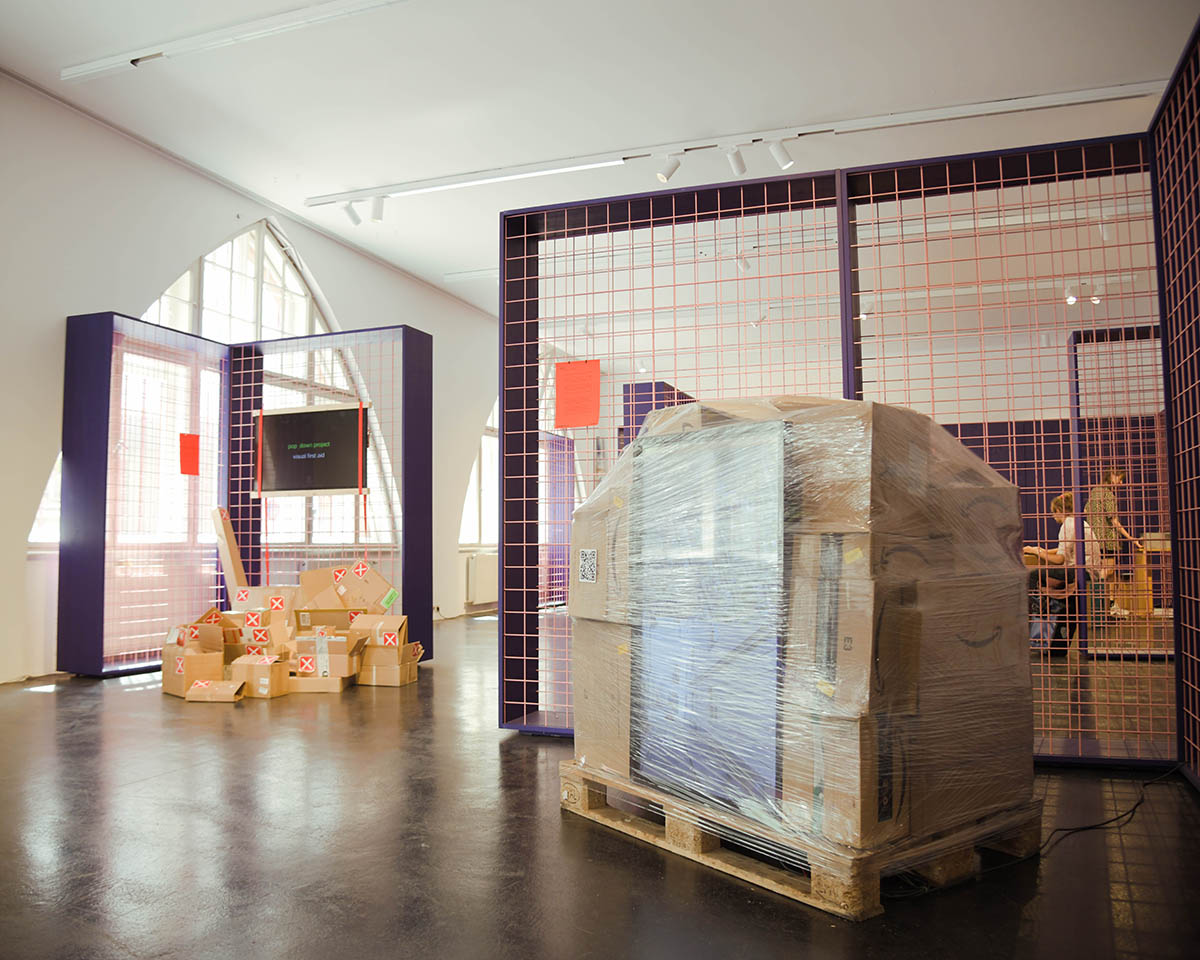
Theresa, you are an artist yourself, next to working in the cultural scene. You are one of the curators of AMRO24. Tell us more about yourself, and can you introduce the other founders and curators?
Theresa: Well, my artistic background is more about spatial politics, movement, and the behavior of human bodies in „physical“ public spaces. I am part of a female performance collective named Raumarbeiterinnen (www.raumarbeiterinnen.org), with whom we’re working on site-specific performances, happenings, and interventions regarding all of the named topics. Next to this, I’m working as a producer and cultural organizer for several associations and projects. After being involved in the past edition as a cooperation partner through the self-organized cultural initiative RAUMSCHIFF, I joined the AMRO team, coordinating the production.
To name everybody is a big challenge, but here are a few names that are contributing to the program: Next to Gabriela Gordillo, Ushi Reiter, Aileen Derieg, and Davide Bevilacqua, many people from the community contributed relevant input to the current festival edition: Sabina Köfler, Bundes, Peda, Aimilia Liontou, Vinzenz Landl, Giacomo Piazzi, Christina Gruber, Vladislav Nazarov, Mathilde Spither, Adnan Hadzi, Marloes de Valk, Juan Pablo Linares, vo ezn, Dasha Ilina, Simon Repp, Christoph Nebel, Maria Orciuoli, Patrick Derieg, Federico Poni, Rebecca Strasser-Kirchweger, S()fia Braga,
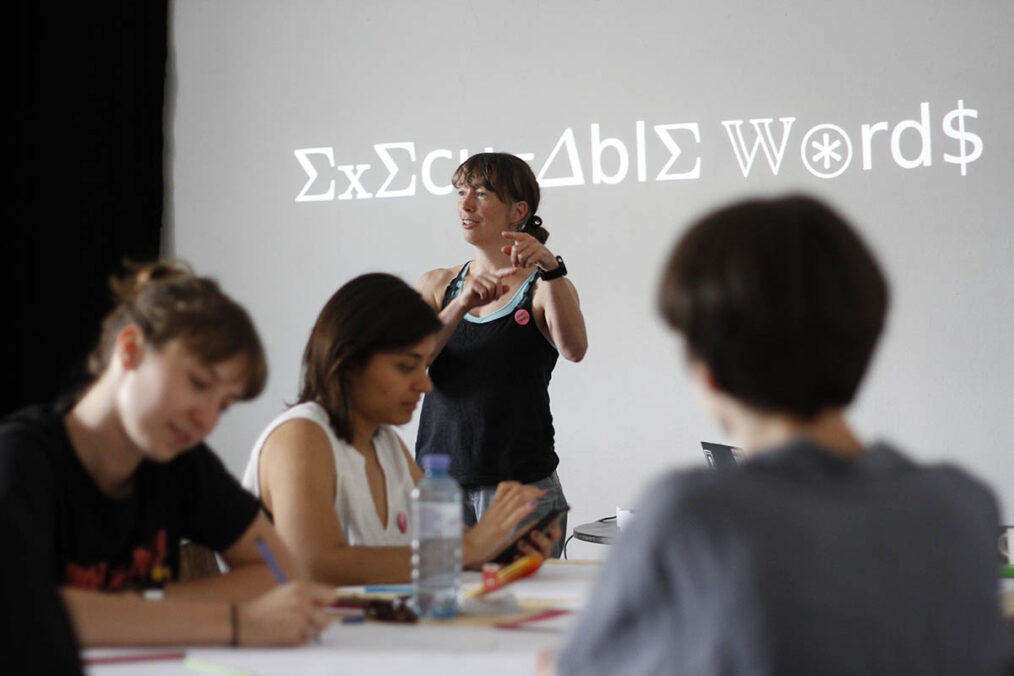
Tell us about the locations in Linz where a four-day event in May will take place.
Theresa: The Festival will take place at several cultural spaces in Linz, like afo architekturforum oberösterreich DH5, MAERZ, RAUMSCHIFF, bb15, and the DevLoL hackerspace with lectures, workshops, installations, or performances, as well as Stwst as the main location for the FLOSS-nightline.
Keywords for this year’s program are: Flirting with Burnouts, Looking at Points Tipping, and Reseeding Resistance. It sounds poetic as well. How did the team come up with this?
Aileen: On the third Wednesday of each month, there is an informal gathering of the local Servus community. The first title, „Dancing at the Crossroads,“ was initially inspired by an article about AI that was written by a member of this community (https://interregnum.ghost.io/a-decisive-crossroads/) and some discussions that followed. After a longer discussion about permacomputing at one of these gatherings, there was a discussion about whether to focus AMRO this year on one issue or to try to find the interconnections between multiple issues that we are passionate about, but without being so overwhelmed by poly-crises that we become paralyzed. Those keywords came out of those conversations.
Davide: Those other keywords, Flirting with Burnouts, Looking at Points Tipping, and Reseeding Resistance, are mostly there to give a general feeling and emerged, like the title, through several conversations with the community and the artists working at the 2023 research lab (https://research.radical-openness.org/2023).
The open call for participation just closed. What are your expectations from applicants, and what would be the requirements for joining?
Aileen: AMRO is always fun, but we are also quite serious about our themes and about FLOSS, so we expect applicants to take that seriously too. We want to hear about how people think they can contribute to AMRO beyond just displaying their artwork.
Gabriela: We asked people to apply under the frame of FLOSS, but if this case is non-existent in their projects, we invite them to re-adapt their proposal in this direction. This is an invitation to re-think, re-consider, and open a dialogue where things are not fixed but can change, be modified, and adapt to other versions of themselves. We are open to discussing the proposals with the participants.
Not into commodified and objectified finished products, but rather processes, conversations, and accidents.
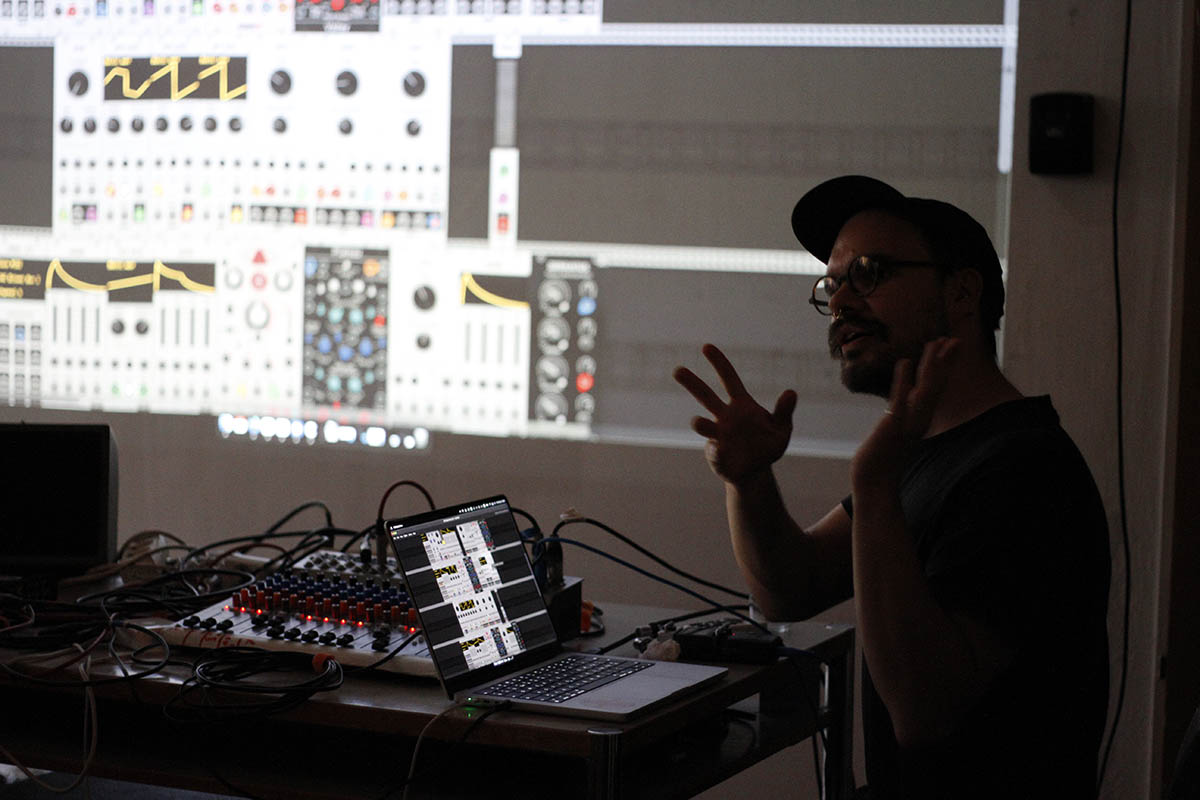
Visitors with what kinds of interests are welcome? What can we, as visitors, expect to see and hear at AMRO?
Ushi: We do not have visitors in this sense. All the people who are there are contributing.
Gabriela: In this sense, it is more of a „community meeting,“ which has been gathering for a long time in this and other European contexts and travels every time to Linz. Of course, this is a network that stays close and expands in different spaces (virtual and real). At the same time, it is an invitation to the local scene (of course!)—for some, this is their first encounter with these topics or approaches. We want to awaken their curiosity and interest in these topics and make them part of the community. AMRO was always bound to the free scene in Linz through its locations (Stadtwerkstatt-AFO), Orga-Team, and everyone that surrounds it.
The rise of artificial intelligence is one of the many important topics for the festival this year. How is AI questioned, and what is its importance in the context of the festival? Is its rise measurable or not?
Aileen: So many discussions of AI are dominated by the narratives promoted by Big Tech to secure their own monopolies and profits and lock down AI behind their own proprietary systems. With our focus on FOSS, we want to bring people together who have different ideas about how AI could be used as a technology for people, not for profit, and how we might resist the currently dominant narratives.
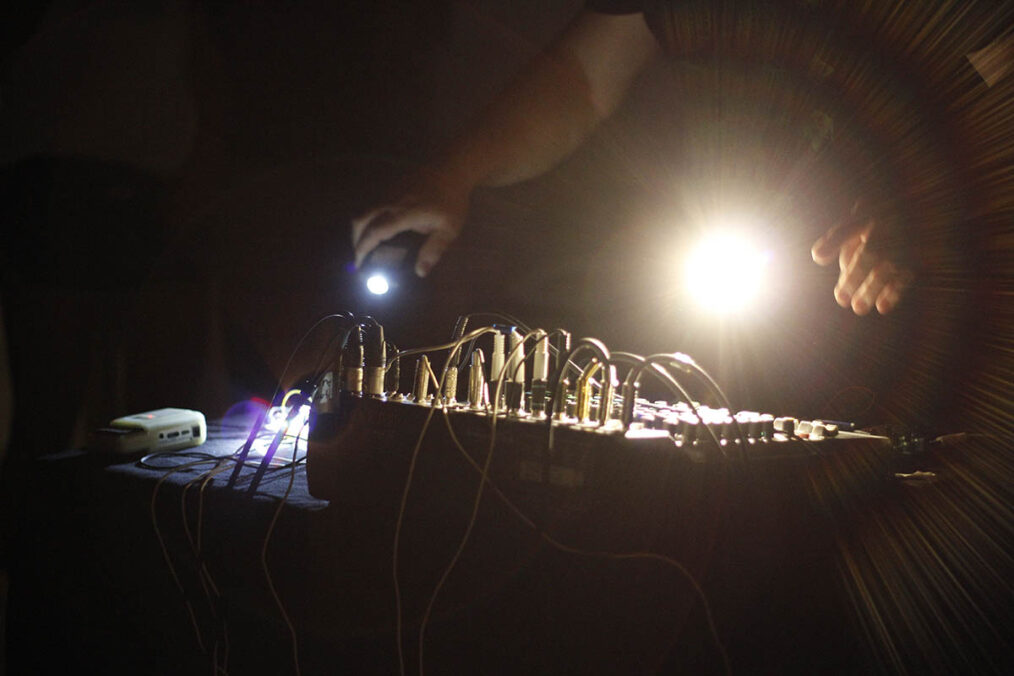
It is an interesting fact that AMRO Festival doesn’t have social media channels but is operating through a newsletter. Is this a purposeful and conscious statement of the festival team to communicate this way, or are there other reasons?
Gabriela: Well, AMRO uses the channels from Servus. There is a mastodon channel, and the newsletter is the way that a community in various locations stays in tune with news, especially the announcement of every festival edition and open call. The choice and use of tools is the first approach in Servus. Following Audre Lorde’s saying, „The master’s tools will never dismantle the master’s house,“ we try to make a counter-proposal and challenge behaviors and processes that are taken for granted or are given by the dominance of big-tech infrastructures. Of course, it is difficult to draw a line at an individual level—bounded by privilege and context—on how to adopt alternative practices and commit to them. Nevertheless, as an association, we aim to facilitate access to these practices for others and, therefore, to be consistent with these principles in our methods. It’s always a negotiation and a process.
Davide: In terms of social media, as a critical tech initiative, we are very aware of the toxic, polarizing, and hedonistic vibes that social media dynamics bring to society. AMRO uses the channels from Servus, and it prioritizes the quality of the exchange over speed or visibility. We find the federated, self-hosted Mastodon an interesting space to invite our community to a conversation! When we have to compromise and reach a wider audience, we can also sometimes use other mainstream platforms. We used to be active on Twitter and Facebook; now sometimes we announce events on Instagram. But the difference between self-promoting and having a fruitful exchange is very large, so as a rule of thumb, we prefer to develop our conversations with the community through exchange media. It can be Mastodon, mailing lists, or even simply via email and sometimes short messages to reach out to our community.
Gabriela: AMRO uses the channels from servus.at to communicate with its wide-spread community. The use and choice of tools is an approach from servus.at, as an initiative that provides access to open-source alternatives. In this way, the practices that follow try to stay consistent with the principle of challenging the status quo given by big-tech infrastructures.
AMRO24
Festival dedicated to Art, Hacktivism and Open Culture
8–11 May 2024
Linz, Austria
Cooperations and festival locations: Kunstuniversität Linz, Department of Time-Based Media, afo, Architekturforum Oberösterreich, STWST, bb15, Space for Contemporary Art, MAERZ, dh5, /dev/lol, Developer Lab of Linz, and more.
AMRO – www.radical-openness.org
Art Meets Radical Openness is a biennial festival for art, hacktivism, and open cultures, organized since 2008 by servus.at in cooperation with the Linz University of Art, Department of Time-Based Media. AMRO offers a context for discussing the challenges of digital cultures, software and network infrastructures, art and everyday life, education, politics, and activism. Theresa Muhl is a designer, spatial strategist, and spatial thinker. The focus of her artistic and design positions deals with the relationship between body space and human space, as well as questions about the experience of space and the questioning of spaces. Her works result in installations, performances, or spatial images.
Gabriela Gordillo is a sound and visual artist active in Linz and Vienna and is interested in participatory process design and performance. Gabriela curated the last three nightlines of AMRO since the 2020 fully online edition and contributed to several other servus projects, such as the two editions of Design Week and the network performance software platform a.space.
Theresa Muhl is a designer, spatial strategist, and spatial thinker. She wants to create synergies between theoretically conceptual and applied artistic interventional work. The focus of her artistic and design positions deals with the relationship between body space and human space, as well as questions about the experience of space and the questioning of spaces.
Ushi Reiter is one of the AMRO founders. She gave shape to the festival and initiated many of the processes happening in the association. As a board member of servus.at she accompanies and supports the development of current editions of the festival.
Aileen Derieg has also collaborated with Servus for two decades and has a fundamental interest in processes of self-organization, feminist infrastructure, and activism. In AMRO, Aileen curates and exchanges, but most of all, she facilitates the best conversations.
Davide Bevilacqua tries to bring together all the various interests and processes of the local group of people active in Servus and the international community. Since 2018, Davide has coordinated the development of AMRO and the research labs.





